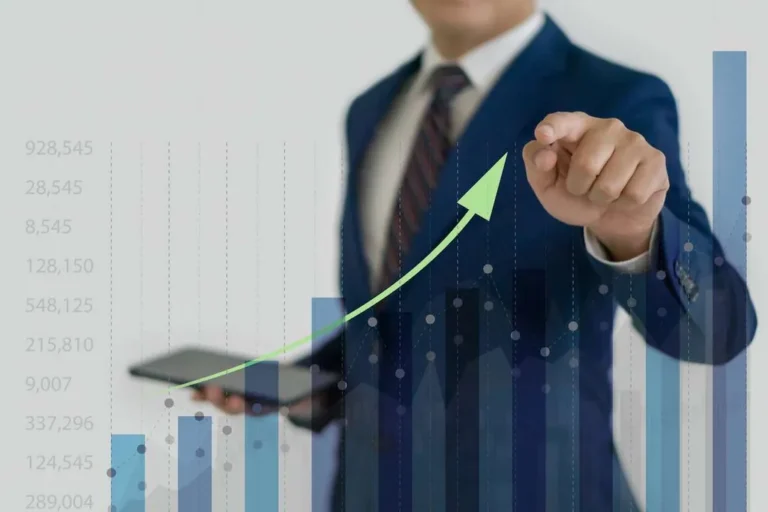Content
And the key to getting enough people to participate in a market is having the right incentive structure. So, that’s what many of these differences come down to — how these different platforms incentivize their traders. But there are also prediction markets that address public health concerns, geopolitical issues and many other what are prediction markets types of questions and trends.
Understand Patterns and Results, Anticipate Outcomes
As more press attention is paid to prediction markets, it is likely that more groups will Digital asset be motivated to manipulate them. However, in practice, such attempts at manipulation have always proven to be very short lived. These events can span a wide range of topics, including political elections, sporting competitions, economic indicators, geopolitical events, and more. By trading contracts on these events, participants effectively bet on their predicted outcomes. The prices of these contracts fluctuate based on the perceived likelihood of each outcome, reflecting the collective wisdom of the market.
Similar content being viewed by others
- Once they’d gone long at the first arrow, within three bars, they’d already be down more than 100 pips.
- This privately held startup is backed by Sequoia, Y Combinator, Henry Kravis and Charles Schwab, among others, and has raised US$30 million to date.
- These markets harness the collective wisdom of the crowd to forecast everything from elections to asset prices.
- However, what many inexperienced investors don’t realize is that traders don’t try to predict the future.
- Predictors in prediction markets differ from almost all types of paid analysts and professional forecasters, as they are actively engaged in the market.
- Prediction markets can be thought of as belonging to the more general concept of crowdsourcing.
So, for example, in a binary market, you can place a bet on whether or not currency rates will rise, while in a non-binary market you can wager on just how big the rate increase will be. What constitutes a prediction market and the societal advantages they offer? For instance, an entrepreneur might forecast trends in emerging markets, weighing in on factors that data alone can’t capture, like local sentiment and cultural trends. Prediction markets capture this blend of experience and intuition, highlighting that even in an AI world, there’s something irreplaceable about the human mind. Prediction markets offer a unique way https://www.xcritical.com/ to gauge public sentiment, potentially make speculative gains, and be used as a tool for overall risk management and decision-making.
What Is The Best Prediction Market?
Prediction markets operate on the principle that the collective knowledge and wisdom of a large group of people can provide more accurate predictions than individual experts or surveys. These markets allow participants to buy and sell shares in the outcome of an event, such as the winner of an election or the price of a particular asset at a future date. While AI excels at processing vast amounts of data, prediction markets celebrate the human touch—our sixth sense, our ability to read between the lines and our experience-based judgment. In these platforms, people bring a lifetime of experiences, beliefs and insights to bear on a variety of outcomes. Think of the countless scenarios in a business where predictions go beyond pure data analysis.
What Role Do Prediction Markets Play in Economics?

Since then, the Iowa Electronic Markets have often been used to predict the results of political elections with greater accuracy than traditional polls. In 2004, the American journalist James Surowiecki championed the use of prediction markets in his seminal book The Wisdom of Crowds, and the term came into vogue. Prediction markets are markets where people can trade stocks that are tied to the outcome of an event.
Since prediction market questions, by definition, are quantitative and have a verifiable and objective outcome, when the answer is known there are winners to each event. Results from such platforms are subjective and do not always assure the same or a relative real-life outcome. As analytics tools, they could also give insight into what people think about an event. Contemporary prediction markets have a good level of efficiency, however, they are still in their early stage and suffer from a number of limitations.
Later, based on the individual’s success in making accurate predictions, they are awarded financial incentives or rewards by the operator. Historically, these efforts have taken many forms, including placing bets on the outcome of certain events, such as who would become the next pope or whether the price of grain would pass a certain threshold. In the 20th century, Austrian economists analyzed these practices and formalized the idea of using “prediction markets” to forecast political and financial outcomes. Prediction markets can be used to create crowd-sourced forecasts, collecting predictions from dozens or hundreds of traders rather than a handful of experts. Traders “vote” by placing bets on what they believe is the most likely outcome, thereby causing the price of that outcome to rise or fall. This market mechanism effectively turns the share price for each outcome into a crowdsourced estimate of that outcome’s probability.
Most common questions in prediction markets platform, are asked that have some sort of objective and verifiable, outcome, like “When will it happen? When the answer is known, the question is judged and winners positions are fixed. If they had taken an answer and the answer happens, they typically make money.
This requires the operator of the prediction market to maintain a ledger of each trade, delivering the payoff to the final owner of each bet. When a prediction market is created for a specific event, participants can trade shares representing different outcomes. The price of each share reflects the perceived probability of that outcome. For example, if the market believes there is a 70% chance of a particular candidate winning an election, shares representing that outcome will be priced higher than shares representing other candidates.
Predictions are usually related to politics, financial markets, global events, and other investments. A prediction or betting market is a platform where individuals predict and bet on future events. Based on the success of the prediction, the participant makes profits or losses.
Some prediction websites, sometimes classified as prediction markets, do not involve betting real money but rather add to or subtract from a predictor’s reputation points based on the accuracy of a prediction. This incentive system may be better-suited than traditional prediction markets for niche or long-timeline questions.[40][42] These include Manifold,[43] Metaculus, and Good Judgment Open. In the Tradesports 2004 presidential markets there was an apparent manipulation effort.
Robin Hanson, a professor at George Mason University, is an advocate of prediction markets. He makes the case for prediction markets by emphasizing the removal of reliance on self-interested punditry by so-called experts. So, I think it’s very exciting that we’re starting to see prediction markets implemented on Twitch and some other social platforms like Reddit. As we see these companies move more deeply into the metaverse, they will probably increasingly turn to prediction markets to help them engage more fully with their users.
Zeitgeist also covers other sectors including politics, science, and mainstream finance. In addition, while traditional prediction markets are managed by a central operator, trades in crypto prediction markets are self-executed via smart contracts to distribute payoffs. While most prediction markets rely on using real money to incentivize accurate forecasts, this can run into trouble in jurisdictions where online gambling is illegal. Some prediction markets allow trades in virtual tokens instead of money, with prizes or other incentives to players that collect the most tokens. This allows markets to operate legally, while providing a low-risk platform for traders.







